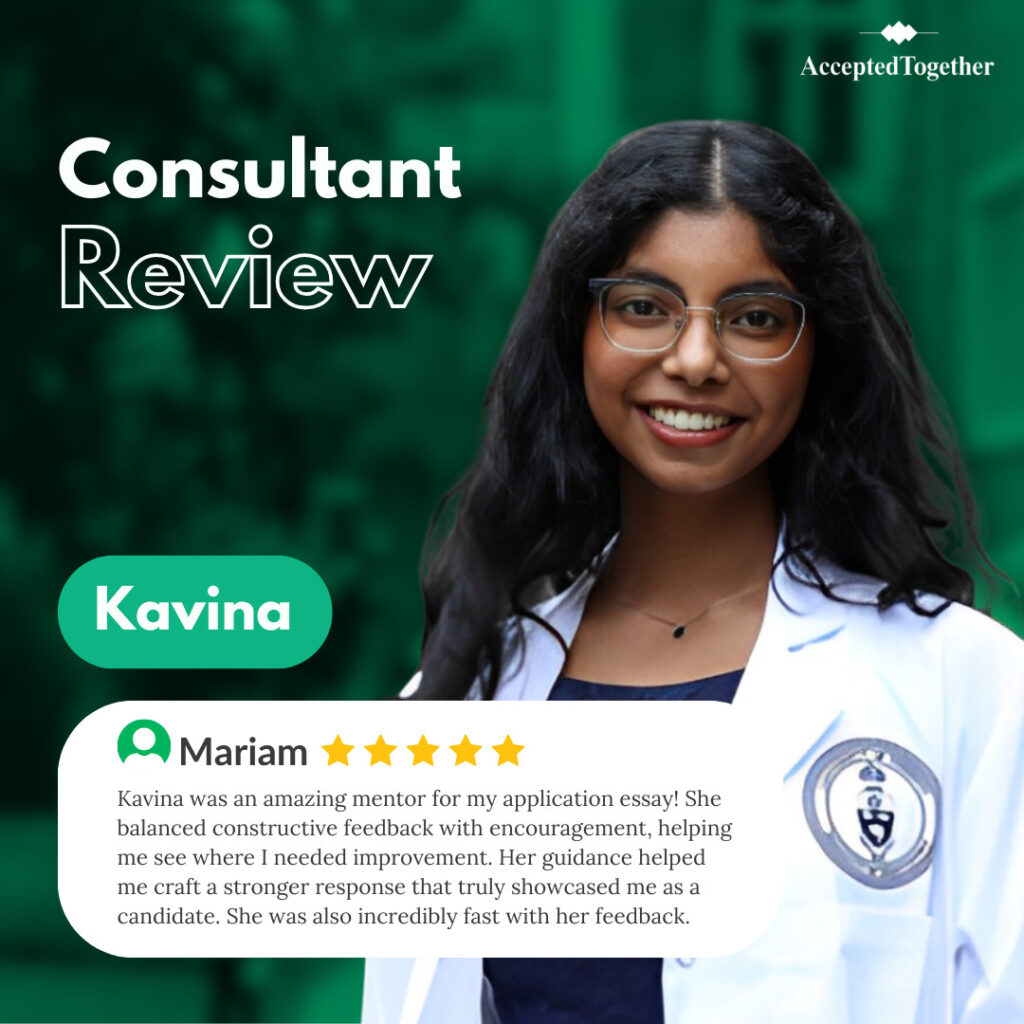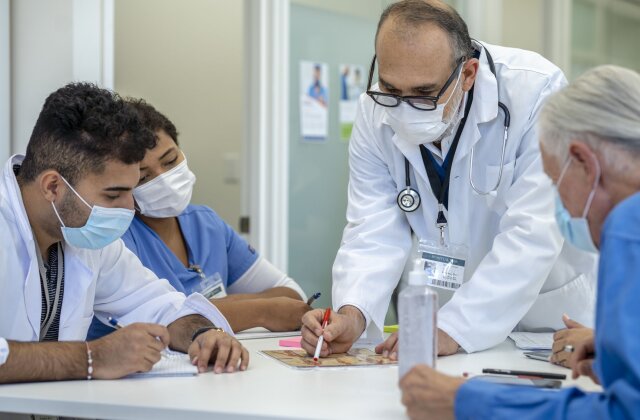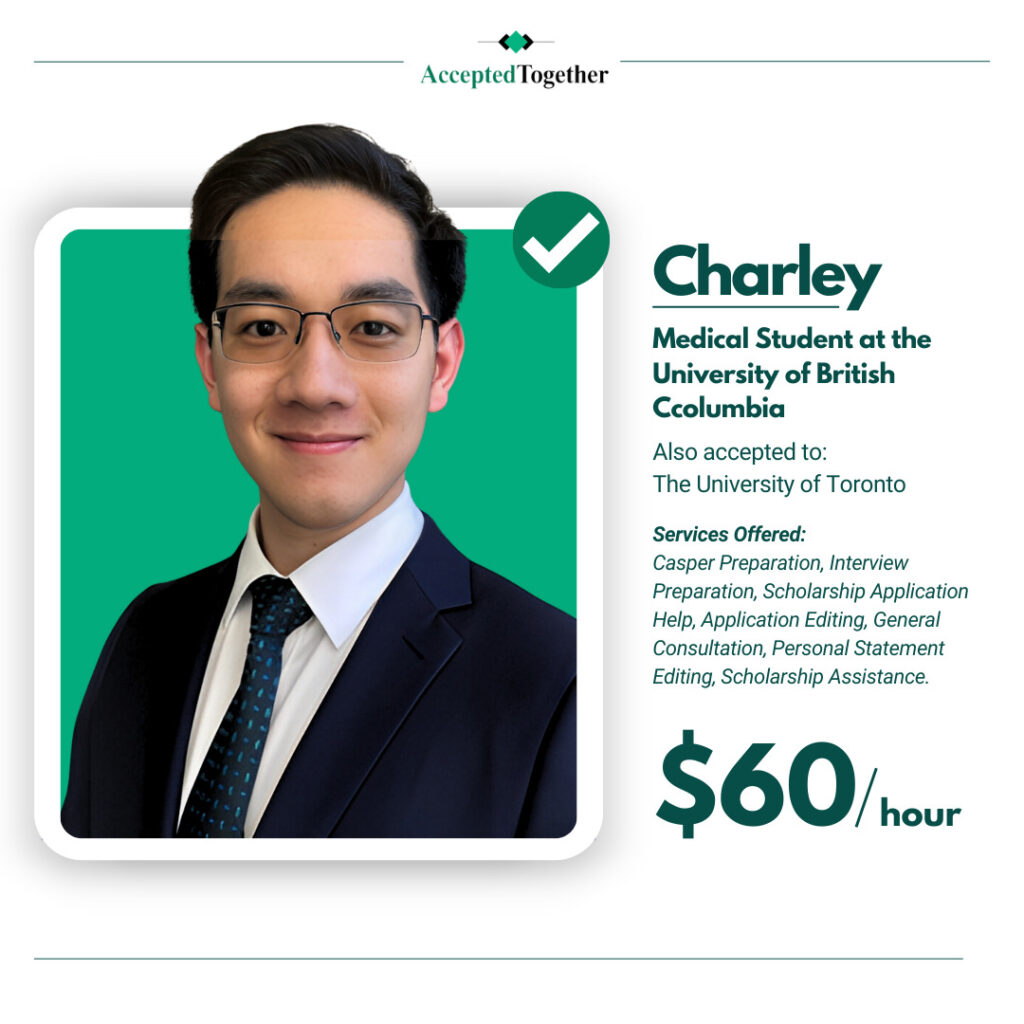Last updated on May 5th, 2025 at 03:44 am
Table of Contents
Introduction
Getting a medical school interview is a big deal—it means you’ve cleared the first round and now have a real shot at getting in. But interviews can be unpredictable, and knowing what format you’ll face is half the battle. Some schools stick with the classic one-on-one conversation, while others put you through a series of rapid-fire scenarios. Some make you navigate group discussions, and a few mix everything together. Each approach is designed to test how you think, communicate, and handle pressure.
Understanding the types of medical school interviews can make the difference between walking in prepared or feeling blindsided. Whether it’s a traditional panel interview, a multiple mini interview (MMI), or a modified personal interview (MPI), each format has its own way of assessing your ability to think on your feet, communicate effectively, and demonstrate the qualities that make a great doctor.
This guide breaks down the most common medical school interview formats, what to expect, and how to approach them. Whether you’re facing a structured Q&A session, a fast-paced problem-solving station, or a group discussion, knowing what’s ahead will help you focus on showing why you belong in medicine.
Click to see hundreds of consultants who can mentor you:

Traditional Interviews
Traditional interviews are one of the most common types of medical school interviews, and they typically follow a structured yet conversational format. Schools use this approach to assess an applicant’s background, motivations, and ability to communicate clearly. These interviews usually last about 30 minutes but can be longer depending on the school. Some are open-file, meaning the interviewer has access to your application, while others are closed-file, where they only know basic details about you. Each style presents different challenges, but both require strong communication skills and the ability to think through responses logically.
Traditional interviews are usually divided into one-on-one interviews and panel interviews. While the setup varies, the goal is the same—evaluating your ability to articulate your experiences, respond to challenging questions, and demonstrate why you’re a strong candidate for medical school.
One-on-One Interviews
In a one-on-one interview, you’ll meet with a single interviewer, who could be a faculty member, a medical student, a physician, or an admissions committee representative. These interviews may be open-file, where the interviewer has reviewed your application, or closed-file, where they only know your name and basic details. In an open-file interview, expect specific questions about your experiences, academic background, and activities listed in your application. Closed-file interviews, on the other hand, focus more on personal insights and how well you can present yourself without relying on prior knowledge of your achievements.
These interviews tend to be conversational, though some can feel more structured depending on the interviewer’s style. You might be asked about your motivation for medicine, personal challenges, ethical dilemmas, or your understanding of healthcare issues. Since one-on-one interviews rely heavily on personal interaction, your ability to build rapport and engage in thoughtful discussion is just as important as the content of your answers.
One challenge of one-on-one interviews is that they can be unpredictable. Some interviewers follow a standard set of questions, while others take a more free-flowing approach, digging deeper into specific aspects of your background. Because of this, it’s important to prepare for a wide range of topics, from why you chose medicine to your thoughts on current healthcare issues.
Body language, tone, and overall demeanor also play a role in how you are perceived. Schools are looking for applicants who can handle stress, communicate effectively, and demonstrate professionalism. Since this is a common type of medical school interview, practicing with mock interviews can help you get comfortable answering questions in a natural but structured way.
Panel Interviews
A panel interview involves multiple interviewers questioning you at the same time. The panel typically consists of a mix of faculty members, medical students, admissions officers, and sometimes healthcare professionals. This format is designed to assess how well you handle questions from different perspectives, think critically under pressure, and engage with multiple people in a professional setting.
Compared to one-on-one interviews, panel interviews can feel more intense because you’re addressing multiple people at once. Each panelist may have a different style—some may ask open-ended questions, while others may press for more detailed explanations. The key is to stay composed, listen carefully, and make sure your responses address the question being asked.
One of the biggest challenges of a panel interview is managing eye contact and body language. Since there are multiple interviewers, it’s important to acknowledge everyone in the room, rather than just focusing on the person who asked the question. A good approach is to start by making eye contact with the interviewer who posed the question and then shift your gaze briefly to others as you continue speaking. This helps create engagement and shows confidence in handling group discussions.
Because panel interviews involve different perspectives, the questions may cover a range of topics, from your motivation for medicine and past experiences to ethical dilemmas and healthcare policies. Some interviewers may take a more conversational approach, while others might be more direct in their questioning. Handling a panel interview well requires a balance of confidence, adaptability, and structured thinking.
Some schools use a semi-structured panel format, where interviewers ask set questions but also have the freedom to explore topics in more depth based on your responses. Others may follow a strict script, ensuring all applicants are asked the same questions to maintain consistency in evaluation. Either way, preparation is key—reviewing common medical school interview questions, practicing mock interviews, and staying updated on healthcare topics can help you navigate this format effectively.
Since panel interviews are a widely used type of medical school interview, they require a strong ability to think on your feet. Schools use this format to assess how well you communicate in a group setting, how you handle challenging questions, and whether you can engage professionally with a diverse set of interviewers. Practicing clear, structured responses while maintaining a conversational tone can help you succeed in this interview format.
Multiple Mini Interviews (MMI)
The Multiple Mini Interview (MMI) is a common format used by many medical schools to evaluate applicants beyond their grades and test scores. This style is designed to assess an applicant’s ability to communicate, problem-solve, and think critically under pressure. Unlike traditional interviews, where you sit down with one or more interviewers for an extended period, MMIs involve a series of short stations, each with a different scenario or question.
Since MMIs are structured to test a range of skills, applicants must be able to shift quickly from one scenario to the next. Many schools prefer this format because it reduces interviewer bias and gives a more well-rounded picture of an applicant’s abilities. Understanding how MMIs work, what interviewers are looking for, and the types of scenarios that come up can help applicants prepare more effectively.
How It Works
The Multiple Mini Interview consists of several timed stations, typically between six and ten, with each station typically lasting around eight to ten minutes. Before entering a station, applicants are given a prompt outside the room and a short period, usually two minutes, to read and process the scenario before responding. Once inside, they discuss the topic with an interviewer, act out a role-play, or answer structured questions.
Each station is independent, meaning performance at one does not affect the others. This setup allows applicants to recover if one station goes poorly. Some stations involve a discussion with a faculty member, medical student, or community representative, while others require interacting with actors playing roles such as patients or colleagues. Schools structure MMIs to evaluate specific attributes like ethical reasoning, problem-solving, and communication rather than medical knowledge.
Timing is strict in MMIs. Applicants are usually given warnings when their time is running out, and they must wrap up their responses before the buzzer signals the next rotation. The fast-paced nature of MMIs can feel overwhelming, but the format provides multiple chances to demonstrate key skills, unlike a single traditional interview where one mistake might weigh more heavily.
What They Assess
MMIs are designed to evaluate an applicant’s suitability for medical school beyond academic qualifications. Admissions committees look for strong communication skills, the ability to remain calm under pressure, and a structured approach to solving problems. Since the format requires applicants to engage in different scenarios, adaptability is a major factor in how well someone performs.
One of the key aspects being assessed is ethical reasoning. Many stations involve ethical dilemmas where applicants must show they can weigh multiple perspectives, consider legal and social implications, and arrive at a thoughtful decision. These types of questions test whether an applicant can think critically and make well-reasoned judgments.
Another important focus is interpersonal skills. Medicine requires strong teamwork and patient interaction, so schools want to see if applicants can build rapport, express empathy, and communicate ideas clearly. Some stations include role-play exercises where applicants interact with standardized patients or colleagues, simulating real-world interactions in healthcare settings.
Applicants are also evaluated on their ability to handle challenging situations. Some MMI stations present high-pressure scenarios, such as delivering bad news or responding to a conflict. The goal is to see how well the applicant maintains composure and responds professionally while demonstrating problem-solving skills.
Finally, MMIs assess an applicant’s awareness of healthcare issues. Some stations may involve discussing public health topics, recent medical advancements, or challenges in the healthcare system. While applicants are not expected to be experts, having a general understanding of major issues in medicine helps demonstrate readiness for medical school discussions.
Common Types of MMI Scenarios
Ethical Dilemmas
Ethical scenarios are a major part of the MMI format. These may involve situations where applicants must balance patient rights, confidentiality, or professional responsibilities. An example could be deciding whether to disclose a patient’s medical condition to family members against their wishes. These questions test an applicant’s ability to navigate complex issues while considering different perspectives.
Role-Play Stations
Some MMIs include interactions with standardized patients or actors playing roles such as distressed colleagues, patients receiving difficult news, or individuals with strong opposing views. Applicants are evaluated on their ability to handle emotional situations, show empathy, and communicate clearly. Role-play scenarios often mimic real-life situations that physicians face, making them one of the more practical components of the MMI.
Problem-Solving and Critical Thinking
These stations present hypothetical situations that require logical reasoning. They may involve making a decision with limited information or tackling a complex issue that requires prioritization. Schools want to see how applicants approach problems, explain their thought process, and make informed decisions under time constraints.
Healthcare Policy and Current Events
Medical schools expect applicants to have an awareness of key issues in healthcare. Some stations ask applicants to discuss topics like healthcare accessibility, medical ethics, or recent advancements in medicine. The goal is not to test specific knowledge but to evaluate how well an applicant understands and analyzes broader healthcare challenges.
Personal Questions and Self-Reflection
Some MMI stations focus on an applicant’s motivations, experiences, and qualities that make them a strong candidate for medical school. Questions may ask applicants to describe a time they overcame a challenge, worked in a team, or handled a conflict. These questions allow applicants to demonstrate their character and personal growth.
The Multiple Mini Interview format can be intimidating at first, but understanding its structure and practicing different types of scenarios can make it more manageable. Since MMIs are one of the most common types of medical school interviews, preparing in advance can help applicants feel more confident and perform well on interview day.
Group Interviews
Group interviews are a less common but important type of medical school interview that some schools use to assess how applicants interact in a team setting. Unlike traditional one-on-one or panel interviews, where the focus is on individual responses, group interviews evaluate how candidates collaborate, communicate, and respond to different personalities. The structure varies depending on the school, but typically, a small group of applicants is interviewed together by a panel of faculty, students, or admissions officers.
This format allows schools to see how applicants think on their feet while engaging in discussions, problem-solving exercises, or role-playing activities. Since teamwork is a core skill in medicine, group interviews give admissions committees insight into whether a candidate can work well with others under pressure.
How Group Interviews Work
The setup of group interviews can vary, but they usually involve a small group of applicants—anywhere from three to ten—being interviewed at the same time. Some schools follow a structured approach where each candidate takes turns answering questions, while others use a more interactive format that requires discussion or problem-solving tasks.
Interviewers observe how applicants engage with their peers, whether they dominate conversations, contribute meaningfully, or struggle to find their place in the discussion. Unlike traditional interviews, where applicants have the spotlight to themselves, group interviews require balancing assertiveness with active listening.
Some schools include structured prompts that applicants must discuss as a group. Others use case-based scenarios where candidates must work together to propose a solution to a healthcare-related problem. The key is to stay engaged without overshadowing others, demonstrating both leadership and teamwork skills.
Group interviews may also include a mix of question types, from ethical dilemmas to discussions about healthcare issues. Candidates may be asked to debate a controversial medical topic or collaborate on a shared decision-making exercise. While interviewers assess the quality of responses, they also look for professional and respectful interactions.
What Group Interviews Assess
Medical schools use group interviews to evaluate interpersonal skills, problem-solving abilities, and professionalism. Since medicine requires working with diverse teams, admissions committees want to see how applicants handle group dynamics.
One of the primary qualities assessed is teamwork. Strong applicants contribute to discussions in a way that encourages collaboration rather than competition. Schools look for candidates who can express their thoughts clearly while remaining open to different perspectives.
Another key factor is communication skills. Group interviews test how well applicants articulate ideas, respond to others, and stay engaged in the conversation. Schools want to see candidates who can explain their reasoning without being dismissive or overly assertive.
Adaptability is also important in this format. Since group interviews involve unpredictable interactions, applicants need to stay composed and flexible. Those who struggle to adjust or dominate the conversation may not leave a positive impression.
Interviewers also assess professionalism and respect. Medicine requires working closely with colleagues, patients, and other healthcare professionals. Schools want to see candidates who engage with their peers in a constructive way, even when opinions differ. Disagreements are fine, but applicants who interrupt, dismiss others, or fail to acknowledge different perspectives may stand out for the wrong reasons.
Common Group Interview Scenarios
Discussion-Based Questions
Some group interviews involve open-ended discussion prompts where candidates share their thoughts on a given topic. These discussions may focus on ethical issues, healthcare policies, or challenges in the medical field. The goal is to assess how well applicants engage in conversations, defend their opinions, and respond to differing viewpoints.
Case-Based Scenarios
In some interviews, candidates are given a medical or ethical scenario to work through as a team. This could involve deciding how to allocate limited medical resources, handling a patient with complex needs, or addressing a public health crisis. Interviewers observe how applicants approach the problem, communicate ideas, and collaborate on solutions.
Role-Playing Exercises
Some group interviews include role-play elements where candidates interact with each other or with an actor playing a patient, colleague, or healthcare provider. These exercises test interpersonal skills, empathy, and the ability to navigate difficult conversations in a professional manner.
Structured Question Rounds
In some cases, group interviews follow a structured format where each applicant is asked the same question and given a set amount of time to respond. This format ensures that all candidates have a chance to speak, while also allowing interviewers to compare responses.
Group interviews can be unpredictable, but understanding the format and practicing how to engage in group discussions can make them easier to navigate. Since this is one of the types of medical school interviews that assesses multiple skills at once, strong preparation involves practicing both structured responses and open-ended discussions.
Hybrid Interview Formats
Some medical schools use a mix of interview styles to get a more complete picture of applicants. These types of medical school interviews combine elements from different formats to assess multiple skills in a single process. The two most common hybrid formats are Traditional + MMI (TaMMI) and the Modified Personal Interview (MPI).
Since each interview style evaluates different aspects of an applicant’s abilities, hybrid formats allow schools to measure a broader range of qualities. They provide structure while still leaving room for flexibility, helping admissions committees assess how well applicants communicate, solve problems, and think critically under pressure.
Traditional + MMI (TaMMI)
The Traditional + MMI (TaMMI) format combines elements of both standard panel interviews and Multiple Mini Interviews (MMI). This approach is designed to assess an applicant’s communication skills, ethical reasoning, and ability to engage in structured and unstructured discussions. Schools that use this format aim to balance structured evaluation with real-time interaction.
How It Works
A TaMMI typically consists of two main parts:
- Traditional Panel Interview – Applicants meet with one or more interviewers for a structured discussion about their background, experiences, and motivations for pursuing medicine. This part follows the format of a standard panel or one-on-one interview, where questions focus on academic achievements, personal experiences, and career goals.
- Multiple Mini Interview (MMI) Stations – After the panel interview, applicants rotate through a series of short, timed interview stations. These stations test problem-solving skills, ethical reasoning, and communication ability in various scenarios. Each station is independent, meaning responses at one do not affect the others.
This structure allows schools to evaluate both in-depth personal insights and quick thinking in high-pressure situations. The panel interview gives applicants a chance to explain their experiences and motivations in detail, while the MMI assesses their ability to think on their feet.
What Schools Look For in TaMMI
- Communication Skills – Schools assess how well applicants articulate their thoughts in both structured interviews and fast-paced MMI scenarios.
- Adaptability – Applicants need to transition smoothly from answering personal questions in a traditional setting to responding to unpredictable scenarios in the MMI.
- Ethical Reasoning – Some MMI stations may present ethical dilemmas, requiring applicants to balance legal, social, and professional considerations.
- Professionalism – Schools observe how well applicants interact with different types of interviewers, from faculty members to standardized patients.
Since this type of medical school interview combines two different styles, preparation involves practicing for both traditional interviews and MMI scenarios. Applicants should be ready to discuss personal experiences while also handling quick, structured problem-solving tasks.
Modified Personal Interview (MPI)
The Modified Personal Interview (MPI) is another hybrid format used by some medical schools, like the University of Toronto. This approach is designed to provide a more structured assessment while maintaining a conversational atmosphere. The MPI is used by schools looking for a balance between in-depth personal discussions and standardized evaluation.
How It Works
The MPI consists of multiple interviewers, usually around four to six, who assess different aspects of an applicant’s abilities. Instead of rotating through separate stations like in an MMI, applicants engage in multiple structured discussions, each focusing on specific qualities.
Each interviewer evaluates an applicant based on predetermined criteria, ensuring consistency in assessment. The MPI is designed to be more standardized than a traditional interview while allowing for more discussion than a typical MMI station. Unlike MMIs, which involve many short, rapid-fire scenarios, the MPI allows applicants to expand on their responses without the pressure of strict time limits at each station.
What Schools Look For in MPI
- Structured Thinking – Since each interviewer is assessing specific skills, applicants need to present clear, logical responses.
- Consistency – Schools look for applicants who demonstrate professionalism and strong communication across multiple discussions.
- Ethical and Critical Thinking – Some MPI discussions may focus on real-world medical dilemmas, requiring applicants to consider different perspectives.
- Personal Insight – The MPI includes questions about personal motivation, background, and experiences, similar to traditional interviews.
Since the MPI is structured but still allows for deeper discussion, applicants need to be prepared for a mix of personal and scenario-based questions. Schools use this format to gain a clearer sense of an applicant’s ability to engage in meaningful discussions while maintaining professionalism.
Hybrid interview formats like TaMMI and MPI test a range of skills, making them an important type of medical school interview for applicants to prepare for. Since these formats combine elements from different styles, practicing both personal storytelling and structured problem-solving can help applicants perform well in these settings.
What Interviewers Look For
Medical school interviews are designed to assess much more than academic achievements and test scores. While applicants are evaluated on their knowledge and experiences, interviewers focus heavily on how candidates communicate, think through problems, and interact with others. Since different types of medical school interviews are used across institutions, the specific qualities being assessed may vary, but some core traits are valued in all formats.
Interviewers are looking for well-rounded candidates who can handle the pressures of medical training and work effectively as future healthcare professionals. Strong communication, ethical decision-making, and professionalism are essential. Understanding what interviewers prioritize can help applicants prepare for each interview format with confidence.
Communication Skills
Strong communication is one of the most important qualities medical schools assess. Doctors need to explain complex information to patients, collaborate with colleagues, and build trust in healthcare settings. Whether an applicant is in a traditional interview, a panel discussion, or a multiple mini interview (MMI) station, their ability to communicate clearly and concisely is being evaluated.
Interviewers watch for:
- Clarity – Answers should be direct and well-structured. Rambling or vague responses make it harder to assess an applicant’s thought process.
- Confidence – Speaking with conviction shows that an applicant is comfortable discussing their ideas, even under pressure.
- Engagement – Strong applicants show active listening skills, make eye contact, and adjust their responses based on the conversation.
Some types of medical school interviews, such as MMIs and group interviews, specifically test communication in high-pressure or collaborative situations. These formats assess whether an applicant can respond under time constraints, interact with peers, and maintain professionalism in discussions.
Ethical and Critical Thinking
Medical professionals regularly face complex ethical dilemmas, and interviewers want to see how applicants approach tough situations. Many schools include scenario-based questions in their interviews, asking candidates how they would respond to patient confidentiality concerns, medical errors, or healthcare access issues.
Interviewers look for:
- Balanced Decision-Making – Good answers show an ability to consider multiple perspectives before making a conclusion.
- Understanding of Medical Ethics – Applicants should demonstrate awareness of fundamental ethical principles like patient autonomy, beneficence, and justice.
- Logical Reasoning – Responses should be well thought out, avoiding snap judgments or extreme positions.
MMIs often include dedicated ethics stations, where applicants discuss real-world challenges in medicine. These questions do not have a single “right” answer, but schools are looking for applicants who can break down issues logically and show sound judgment.
Professionalism and Maturity
Professional behavior is critical in medicine, and interviewers assess whether applicants demonstrate the level of maturity expected from future physicians. The way applicants handle themselves during an interview—both in their answers and interactions—can indicate how they will behave in a clinical setting.
Key qualities include:
- Self-Awareness – Applicants should recognize their strengths and limitations and be open to feedback.
- Respectfulness – Whether speaking to an interviewer, a peer, or a standardized patient, applicants should remain composed and professional.
- Adaptability – Medical environments are unpredictable, and candidates should show they can stay calm and adjust when faced with unexpected challenges.
In group interviews, professionalism is especially important. Applicants need to engage respectfully, avoid interrupting others, and contribute without dominating the discussion. The ability to work well with different personalities is just as important as giving a strong answer.
Understanding of Healthcare Issues
Medical schools expect applicants to be aware of the broader issues affecting the healthcare system. While deep expertise is not required, interviewers look for candidates who stay informed on current challenges in medicine and can engage in thoughtful discussions about them.
Common topics include:
- Healthcare Policy – Understanding topics like public vs. private healthcare, access to care, and medical costs can be useful.
- Medical Advancements – Schools may ask about recent developments in treatments, technology, or research.
- Global Health Issues – Some interviews include discussions about international health concerns, disparities in medical care, or ethical challenges in global medicine.
Some types of medical school interviews, particularly panel interviews and MMIs, may include questions on healthcare topics to assess how applicants approach unfamiliar subjects. Schools are not testing memorized knowledge but rather an applicant’s ability to engage critically with real-world issues.
Ability to Work in a Team
Medicine is a collaborative field, and medical schools want students who can work well with others. Some interviews, especially group interviews and MMIs, test an applicant’s ability to navigate teamwork. Schools observe how applicants handle disagreements, contribute to discussions, and support their peers.
Interviewers assess:
- Collegiality – Applicants should engage constructively with peers, respecting different viewpoints.
- Leadership and Initiative – Taking the lead is good, but interviewers also watch for applicants who encourage group participation.
- Conflict Resolution – Applicants may be evaluated on how they respond to differences of opinion in a professional way.
Since doctors frequently collaborate with other healthcare professionals, showing the ability to listen, compromise, and engage productively is crucial. Schools want to see applicants who can balance confidence with teamwork.
Self-Reflection and Growth
Strong applicants demonstrate an ability to learn from their experiences. Interviewers may ask about challenges the applicant has faced, mistakes they have made, or moments of personal growth. The goal is to see if an applicant can acknowledge areas for improvement and take steps to develop professionally.
Good responses show:
- Honest Reflection – Applicants should acknowledge challenges without making excuses.
- Personal Growth – Schools want to hear what was learned from setbacks or mistakes.
- Commitment to Improvement – Medicine requires lifelong learning, so applicants should show they are willing to grow and adapt.
In traditional interviews and panel interviews, self-reflective questions are common. Medical schools look for applicants who can evaluate their own progress and take feedback constructively.
Medical schools use different types of medical school interviews to evaluate a wide range of qualities, from communication skills to ethical judgment. Understanding what interviewers look for can help applicants prepare targeted responses and present themselves in a way that aligns with what schools value in future medical professionals.
How to Prepare
Preparing for medical school interviews takes time, strategy, and practice. Schools use different types of medical school interviews to assess applicants, and knowing what to expect can help you feel more confident on the day. From traditional one-on-one interviews to multiple mini interviews (MMI), each format has unique challenges. A well-prepared applicant understands the school they’re applying to, anticipates common questions, and practices responding to ethical dilemmas and situational prompts.
Research the School
Before your interview, take time to research the medical school you’re applying to. Schools want students who align with their mission, values, and teaching approach. Knowing specific details about the program shows that you’re serious about attending and helps you tailor your answers.
Start by reviewing the school’s website, focusing on:
- Curriculum structure – Some schools have problem-based learning, others follow a traditional lecture format, and some offer hybrid models. Understanding how the program is structured helps you speak about why it’s a good fit.
- Unique programs and research opportunities – Look into dual-degree programs, clinical experiences, or research centers affiliated with the school. If you have specific academic interests, mention how the school’s resources align with your goals.
- Mission and values – Every school has a different focus. Some emphasize community-based medicine, others prioritize research or global health. Be ready to explain how your background and interests match what the school values.
- Clinical training sites – Many schools highlight their hospitals and clinical partnerships. Mentioning a specific location where you’d like to gain experience can make your answer more compelling.
If you know who will be interviewing you, look into their background. Understanding their area of expertise can help you connect with them during the conversation.
Practice Common Questions
While every interview is different, certain questions come up frequently. Preparing strong responses to these common topics ensures you don’t struggle to come up with answers on the spot.
Typical questions include:
- Why medicine? – Schools want to know what led you to pursue this career. Focus on experiences that shaped your decision rather than giving a generic answer.
- Why this school? – Use the research you’ve done to provide specific reasons why this program is the right fit for you.
- Tell me about yourself. – This open-ended question gives you a chance to highlight your background, interests, and key experiences.
- What are your strengths and weaknesses? – Be honest but strategic. Choose a strength that’s relevant to medicine and a weakness that you’ve actively worked to improve.
- Describe a time you overcame a challenge. – Schools want to see resilience and problem-solving skills. Use a specific example to illustrate how you handle difficulties.
While it’s important to prepare answers, avoid memorizing them word-for-word. You want your responses to sound natural, not rehearsed. Make a list of key points you want to mention rather than scripting full responses.
Prepare for Ethical and Scenario-Based Questions
Many types of medical school interviews, especially MMIs, include ethical dilemmas and scenario-based questions. These questions assess your critical thinking, decision-making, and ability to consider different perspectives.
Common ethical topics include:
- Patient autonomy vs. physician responsibility – For example, how would you handle a situation where a patient refuses life-saving treatment?
- Confidentiality – If a teenage patient asks you not to disclose a medical issue to their parents, what would you do?
- Resource allocation – How would you decide which patients receive limited medical resources in an emergency?
When answering ethical questions, use a structured approach:
- Acknowledge the dilemma – Show that you understand the ethical issue at hand.
- Consider different viewpoints – Discuss the perspectives of the patient, physician, and other involved parties.
- Reference ethical principles – Concepts like beneficence, non-maleficence, autonomy, and justice can help support your reasoning.
- Explain your decision – After weighing the options, state your decision and justify it with clear reasoning.
Scenario-based questions may also test interpersonal skills. You might be asked how you would respond to a patient in distress or how you’d work with a difficult colleague. In these cases, interviewers look for empathy, professionalism, and the ability to communicate effectively.
Mock Interviews
One of the best ways to prepare is by practicing in a setting that mimics the real interview. Mock interviews help you refine your answers, improve your confidence, and identify areas where you can improve.
Try different formats depending on the type of medical school interview you’ll be facing:
- Traditional mock interviews – Have a friend, mentor, or advisor ask you common medical school interview questions in a one-on-one setting. Focus on structuring your answers clearly and maintaining good eye contact.
- Panel mock interviews – If your school uses a panel format, practice answering questions from multiple people at once. Work on balancing your attention among different interviewers.
- MMI practice sessions – Since MMIs require quick thinking, time yourself while responding to different scenarios. Practicing under timed conditions will help you feel more comfortable with the format.
- Video recordings – Recording your responses can help you evaluate your tone, body language, and speech clarity. Watching yourself can highlight small adjustments that improve how you present yourself.
Mock interviews also allow you to work on avoiding filler words like “um” and “like.” Taking a brief pause before answering can help you sound more confident and collected.
Since different types of medical school interviews evaluate communication, problem-solving, and professionalism in unique ways, practicing for multiple formats ensures you’re ready for whatever interview structure you encounter.
Check out what students are saying about our consultants:


Conclusion
Medical school interviews are a key part of the admissions process, giving schools a chance to see how applicants think, communicate, and handle real-world scenarios. Since different types of medical school interviews assess various skills, knowing what to expect can help you approach them with confidence. Whether it’s a traditional interview, a multiple mini interview (MMI), a panel discussion, or a group format, each style is designed to evaluate qualities that go beyond test scores and academic performance.
Strong communication, ethical reasoning, and professionalism are essential in any format. Schools want applicants who can articulate their thoughts clearly, work well with others, and think critically about complex situations. Researching each school’s interview style, preparing for common and ethical questions, and practicing through mock interviews can improve your performance on the day.
Since interviews play a major role in admissions decisions, treating preparation seriously can make a difference. Every format has its own challenges, but understanding the expectations of different types of medical school interviews can help you focus on what matters most—showing that you have the skills and mindset needed to succeed in medical training and patient care.
Frequently
Asked Questions
Medical schools use several interview formats to assess applicants. The most common types of medical school interviews include traditional one-on-one interviews, panel interviews, multiple mini interviews (MMI), group interviews, and hybrid formats like Traditional + MMI (TaMMI) or Modified Personal Interviews (MPI). Each format tests different skills, such as communication, ethical reasoning, teamwork, and problem-solving.
Preparation for an MMI involves practicing responses to a variety of short, timed scenarios. Since MMIs test ethical reasoning, problem-solving, and communication, reviewing healthcare policies, practicing with sample ethical dilemmas, and engaging in timed mock interviews can be helpful. Unlike traditional interviews, where you may have a conversation with one person, MMIs require quick thinking, structured responses, and adaptability across multiple stations.
Interviewers evaluate an applicant’s ability to communicate clearly, think critically, and handle professional and ethical situations. They also assess interpersonal skills, teamwork, and knowledge of healthcare issues. Strong candidates demonstrate maturity, professionalism, and the ability to engage in meaningful discussions while maintaining composure under pressure.
When answering ethical or scenario-based questions, it helps to structure your response logically. Start by acknowledging the key issue, consider multiple perspectives, reference ethical principles like autonomy and beneficence, and explain your reasoning clearly. Since these questions often don’t have a single correct answer, demonstrating thoughtfulness and an ability to weigh different factors is more important than picking a specific stance.
A panel interview involves multiple interviewers questioning a single applicant, whereas a group interview includes several applicants being assessed at the same time. Panel interviews test how well an applicant responds to different question styles and maintains engagement with multiple interviewers. Group interviews assess teamwork, collaboration, and professionalism by observing how applicants interact with peers in discussions or problem-solving exercises.
Since hybrid formats combine different interview styles, preparation should cover both structured and scenario-based questions. For TaMMI, applicants should be ready for traditional personal questions and fast-paced MMI stations. For MPI, practicing clear, structured responses and engaging in mock interviews with multiple interviewers can help improve confidence and performance.







